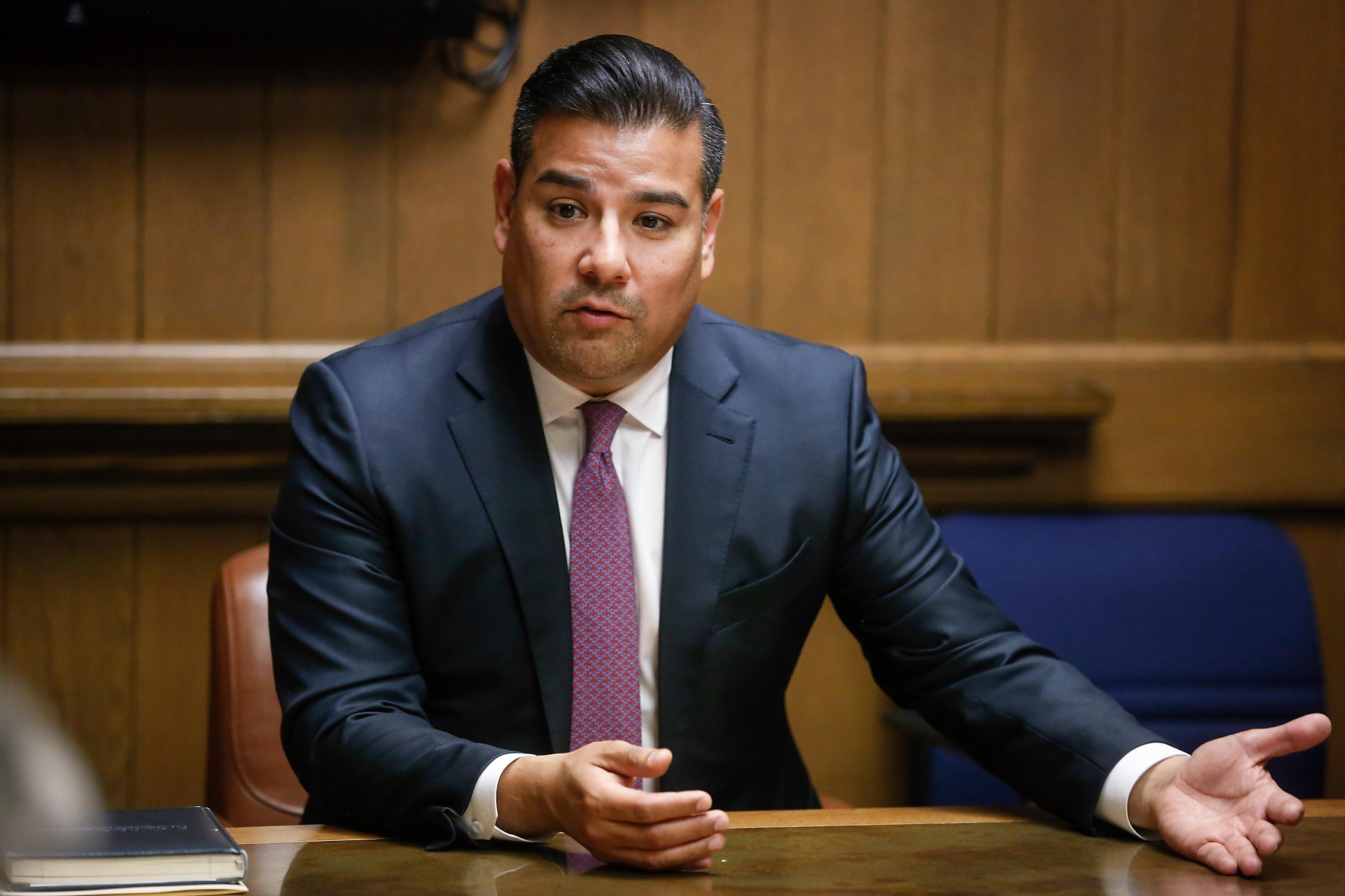

Finance
Who Is A Guarantor In Insurance?
Published: November 15, 2023
Learn about the role of a guarantor in insurance and how they protect your financial interests. Understand the importance of having a trustworthy finance partner.
(Many of the links in this article redirect to a specific reviewed product. Your purchase of these products through affiliate links helps to generate commission for LiveWell, at no extra cost. Learn more)
Table of Contents
Introduction
In the world of insurance, individuals or entities who guarantee the financial obligations of others are known as guarantors. These guarantors play a vital role in ensuring that insurance companies can provide coverage and benefits to policyholders. Acting as a form of additional security, guarantors reassure insurance companies that they will step in to fulfill any financial obligations if the insured party is unable to do so.
Insurance coverage is a crucial component of financial planning, protecting individuals and businesses against unforeseen circumstances, such as accidents, natural disasters, or loss of income. However, there are instances when policyholders may not be able to fulfill their financial obligations, either due to financial constraints, bankruptcy, or other unforeseen circumstances. This is where guarantors come in, offering their reliability and financial stability to ensure the insurance policy remains valid and effective.
When it comes to understanding the role of a guarantor in insurance, it is essential to dive deeper into their definition, responsibilities, qualifications, and the extent of their liability. Whether you are a policyholder or seeking to become a guarantor, gaining knowledge about these aspects is crucial to make informed decisions and navigate the insurance landscape effectively.
Definition of a Guarantor in Insurance
A guarantor, in the context of insurance, is an individual or entity that assumes financial responsibility for the obligations of the insured party. They pledge to cover any outstanding debts or payments if the policyholder is unable to fulfill them. The guarantor serves as a form of security for the insurance company, ensuring that they will not incur financial losses in the event of non-payment by the insured.
Guarantors are typically sought after in situations where there may be increased risk involved, such as in high-value insurance policies or when insuring individuals or businesses with a history of financial instability. By having a guarantor in place, insurance companies can mitigate their risk and provide coverage to those who may not otherwise qualify.
The role of a guarantor extends beyond just assuming financial liability. They also act as a guarantor of the insured’s good faith and intention to fulfill their obligations. In essence, the guarantor vouches for the trustworthiness and reliability of the insured party, giving the insurance company additional confidence in providing coverage.
Guarantors can take various forms, such as individuals, organizations, or financial institutions. For personal insurance policies, a family member or close friend may act as a guarantor. In commercial insurance, businesses may have other companies or financial institutions guarantee their insurance obligations.
It is important to note that being a guarantor is a contractual obligation that comes with legal responsibilities. Guarantors should thoroughly review and understand the terms and conditions of the guarantee agreement before committing to becoming a guarantor in insurance.
Roles and Responsibilities of a Guarantor
As a guarantor in insurance, individuals or entities take on significant roles and responsibilities to ensure the smooth operation of the insurance policy. These roles and responsibilities are crucial in maintaining the integrity of the insurance contract and protecting the interests of the insurance company and the insured party.
1. Financial Responsibility: The primary role of a guarantor is to assume financial responsibility for the obligations of the insured party. This includes making payments on behalf of the insured if they are unable to fulfill their financial commitments.
2. Compliance with Contractual Terms: Guarantors have the responsibility to comply with the terms and conditions of the insurance contract and the guarantee agreement. This involves understanding and adhering to the payment schedule, coverage limits, and any other contractual obligations.
3. Reviewing and Assessing Risks: Before becoming a guarantor, it is essential to thoroughly review and assess the risks associated with the insurance policy. This includes evaluating the financial stability and credibility of the insured party to make an informed decision.
4. Communication with the Insured and the Insurance Company: Guarantors should maintain open lines of communication with both the insured party and the insurance company. This includes staying informed about any changes to the policy, contacting the insured party in case of missed payments, and notifying the insurance company of any potential issues.
5. Timely Payment of Obligations: Guarantors have the responsibility to make payments promptly on behalf of the insured party. Keeping up with payment deadlines ensures the continued validity and effectiveness of the insurance policy.
6. Legal Obligations: Guarantors should be aware of their legal obligations and the potential consequences of non-compliance. It is important to seek legal advice and fully understand the legal implications and liabilities associated with being a guarantor in insurance.
7. Confidentiality and Privacy: Guarantors must respect the privacy and confidentiality of the insured party. Personal and financial information shared during the guarantor process should be kept confidential and only disclosed to relevant parties on a need-to-know basis.
Becoming a guarantor in insurance requires careful consideration of these roles and responsibility. It is essential to assess one’s own financial capabilities, risk tolerance, and legal obligations before committing to be a guarantor.
Qualifications and Requirements to Become a Guarantor
Becoming a guarantor in insurance is a significant responsibility and requires meeting certain qualifications and requirements. Insurance companies have specific criteria in place to ensure that guarantors are capable of fulfilling their obligations and are financially stable. Understanding these qualifications and requirements is essential before committing to become a guarantor.
1. Financial Stability: Insurance companies typically require guarantors to demonstrate a certain level of financial stability and sound credit history. Guarantors should have a consistent income source and a strong credit score to assure the insurance company of their financial capacity.
2. Legal Age and Capacity: Guarantors must be of legal age, typically 18 years or older, and mentally competent to enter into a legally binding contract. Minors or individuals lacking the mental capacity to understand the terms and obligations of the guarantee agreement cannot act as guarantors.
3. Relationship with the Insured: Depending on the type of insurance policy, insurance companies may require guarantors to have a close relationship with the insured party. For personal insurance, guarantors may need to be family members, spouses, or partners. In commercial insurance, a guarantor may need to have a direct business relationship with the insured party.
4. Ability to Review and Understand Contracts: Guarantors should have the ability to thoroughly review and understand the terms and conditions of the insurance policy and the guarantee agreement. This ensures that they are fully aware of their obligations and the potential risks associated with being a guarantor.
5. Willingness to Assume Financial Responsibility: Guarantors must be willing to assume financial responsibility for the obligations of the insured party. This includes making timely payments if the insured is unable to fulfill their financial commitments.
6. Consent and Agreement: Insurance companies require the express consent and agreement of the guarantor before including them in the insurance policy. This may involve signing a separate guarantee agreement or including a guarantor provision within the main insurance contract.
7. Compliance with Regulatory Requirements: Guarantors must comply with any specific regulatory requirements imposed by insurance authorities or governing bodies. These requirements may vary depending on the jurisdiction and type of insurance policy.
It is important to note that the qualifications and requirements to become a guarantor may vary among insurance companies and policies. It is essential to consult with the insurance provider directly to determine their specific criteria and expectations for guarantors.
Guarantor’s Liability in Insurance
When acting as a guarantor in insurance, individuals or entities assume a significant level of liability for the obligations of the insured party. It is crucial to understand the extent of this liability to make an informed decision before becoming a guarantor.
As a guarantor, you become legally responsible for fulfilling the financial obligations of the insured if they are unable to do so. This means that if the insured fails to make the required payments, you, as the guarantor, are obligated to step in and fulfill those obligations. This includes making premium payments, covering deductibles, or paying for any claims or damages that may arise.
The liability of a guarantor in insurance typically extends to the specific insurance policy for which they have provided their guarantee. This means that you are responsible for the obligations outlined in the insurance contract you have guaranteed, but not for any other policies held by the insured.
Furthermore, it is important to recognize that the liability of a guarantor may be joint and several. This means that if there are multiple guarantors involved, each guarantor may be held individually and collectively liable for the insured’s obligations. If one guarantor is unable to fulfill their responsibilities, the other guarantors may be required to cover the shortfall.
It is important to carefully review the terms and conditions of the guarantee agreement to understand the specific liability and obligations you are assuming as a guarantor. This agreement outlines the scope of your liability, any limitations or exclusions, and how your obligations will be enforced. Consulting with legal and financial professionals can help provide clarity and ensure you fully understand your responsibilities.
Failure to fulfill your obligations as a guarantor can have serious consequences. Insurance companies may pursue legal action to recover any outstanding amounts owed, including seeking judgments, imposing liens on assets, or garnishing wages. Additionally, your credit score and financial reputation may be negatively impacted, making it more challenging to secure financing or obtain future insurance coverage.
Before agreeing to become a guarantor in insurance, carefully assess your financial capability and risk tolerance. Consider the potential impact on your personal finances and evaluate whether you are willing and able to assume the liability associated with being a guarantor.
Importance of a Guarantor in Insurance
A guarantor plays a crucial role in the insurance industry, providing additional security and confidence to insurance companies in extending coverage to individuals or entities that may otherwise be deemed high-risk or unable to meet their financial obligations. Understanding the importance of a guarantor in insurance helps shed light on the significance of their role in facilitating access to insurance coverage.
1. Increased Accessibility: Having a guarantor in place allows insurance companies to provide coverage to individuals or businesses who may not qualify based on their own financial standing or history. Guarantors vouch for the credibility and financial stability of the insured party, enabling them to access the protection and benefits of insurance.
2. Risk Mitigation: Insurance companies bear the risk of policyholders defaulting on their financial obligations. The presence of a guarantor helps mitigate this risk by providing an additional layer of financial reassurance. Guarantors signal to the insurance company that they are willing to step in and fulfill the obligations if the insured is unable to do so, reducing the chances of financial loss for the insurer.
3. Confidence and Trust: Guarantors instill confidence and trust in insurance companies. By offering their guarantee, they demonstrate their belief in the insured’s ability to fulfill their obligations. This reassurance strengthens the insurer’s confidence in providing coverage and benefits to the insured party.
4. Facilitates Favorable Terms: In some cases, having a guarantor can lead to more favorable terms for both the insured and the insurer. Insurance companies may offer lower premiums or extended coverage limits to individuals or businesses with guarantors, as the additional security reduces their risk exposure.
5. Coverage Continuity: In situations where the insured is unable to fulfill their financial obligations, the guarantor ensures the continuity of coverage. Without a guarantor, the insurance policy may be at risk of cancellation or non-renewal, leaving the insured without protection during critical periods.
6. Business and Investment Opportunities: For businesses seeking insurance coverage, having a guarantor can open doors to new opportunities. It allows businesses to demonstrate financial stability and credibility to partners, investors, and lenders, facilitating collaborations, investments, and access to capital.
7. Personal Trust and Support: In personal insurance, having a guarantor can provide peace of mind and support in times of uncertainty. The presence of a guarantor may offer emotional support and reassurance to the insured, knowing that their financial obligations will be fulfilled even during challenging circumstances.
The importance of a guarantor in insurance cannot be overstated. They play a vital role in expanding access to insurance coverage, mitigating risks, and fostering trust and confidence between insured parties and insurance companies. Whether in personal insurance or commercial insurance, the presence of a guarantor contributes to the stability and reliability of the insurance industry as a whole.
Common Misconceptions about Guarantors in Insurance
Guarantors play an important role in the insurance industry, but there are several misconceptions surrounding their responsibilities and role. Understanding these misconceptions helps clarify the true nature of being a guarantor in insurance and dispels any misunderstandings.
1. Guarantors are responsible for all insurance obligations: One common misconception is that guarantors are responsible for all the insurance obligations of the insured party. In reality, guarantors are only responsible for the specific obligations outlined in the guarantee agreement or the insurance policy they have guaranteed. They are not liable for any other policies held by the insured.
2. Guarantors are liable for unrelated debts or expenses: Another misconception is that guarantors are responsible for fulfilling debts or expenses unrelated to the insurance policy. The liability of a guarantor is limited to the financial obligations specific to the insured and the insurance policy they have guaranteed. They are not accountable for any unrelated debts or expenses of the insured party.
3. Guarantors must have personal financial wealth: It is often falsely assumed that all guarantors must be wealthy individuals with significant personal assets. While financial stability is important, guarantors can come from various backgrounds and may have different financial means. What matters is the guarantor’s ability to meet the obligations they have guaranteed, not the size of their personal wealth.
4. Guarantors must be family members or close relatives: There is a misconception that guarantors must be family members or close relatives of the insured party. While personal relationships can be a factor, it is not a strict requirement. Depending on the type of insurance and the insurer’s policies, guarantors can be friends, business associates, or other entities willing to assume the financial responsibility of the insured.
5. Guarantors are always released from their obligations after a certain period: Some assume that guarantors are automatically released from their obligations after a specific period. However, the terms and conditions of the guarantee agreement and the insurance policy dictate the duration of the guarantor’s liability. It is essential to carefully review the agreement to understand the length of the guarantor’s responsibility.
6. Guarantors have no say in the insurance policy: It is often misunderstood that guarantors have no involvement or say in the insurance policy. However, guarantors have a vested interest in ensuring the insured’s compliance with the policy, as they are financially responsible for its obligations. They may be consulted on matters related to the insured’s financial stability, potential risks, and changes to the policy terms.
7. Guarantors can easily back out of their obligations: Lastly, there is a misconception that guarantors can easily back out of their obligations if they change their mind or face financial difficulties. However, being a guarantor is a legally binding obligation, and backing out may have serious legal and financial consequences. It is crucial to fully understand the commitment and explore alternatives before agreeing to be a guarantor.
Clarifying these misconceptions helps provide a more accurate understanding of the role and responsibilities of guarantors in insurance. It is important to seek professional advice and carefully review all agreements before committing to become a guarantor.
Conclusion
The role of a guarantor in insurance is a significant one, providing additional security and reassurance to insurance companies in extending coverage to individuals or entities with potential risks or financial constraints. Guarantors take on the responsibility of fulfilling the financial obligations of the insured party if they are unable to do so. Their presence helps facilitate access to insurance coverage, mitigates risks for insurers, and builds trust and confidence in the insurance industry.
Understanding the qualifications, responsibilities, and liabilities of a guarantor is crucial before committing to become one. Guarantors must possess financial stability, legal capacity, and the ability to review and understand contractual terms. They assume liability for specific obligations outlined in the guarantee agreement and play an active role in maintaining open communication with the insured and the insurance company.
There are common misconceptions surrounding guarantors in insurance, including their scope of liability, the extent of their financial responsibility, and their eligibility criteria. By dispelling these misconceptions, individuals can develop a more accurate understanding of the role and importance of guarantors in insurance.
Ultimately, guarantors provide a valuable service in expanding access to insurance coverage and ensuring the continuity of protection for policyholders. Their commitment and financial support contribute to the stability and integrity of the insurance industry as a whole.
For individuals considering becoming a guarantor, it is crucial to carefully assess their financial capacity, risk tolerance, and legal obligations before making a commitment. Seeking professional advice and thoroughly reviewing all agreements and terms will help individuals make informed decisions and fully understand the responsibilities and implications of being a guarantor in insurance.














